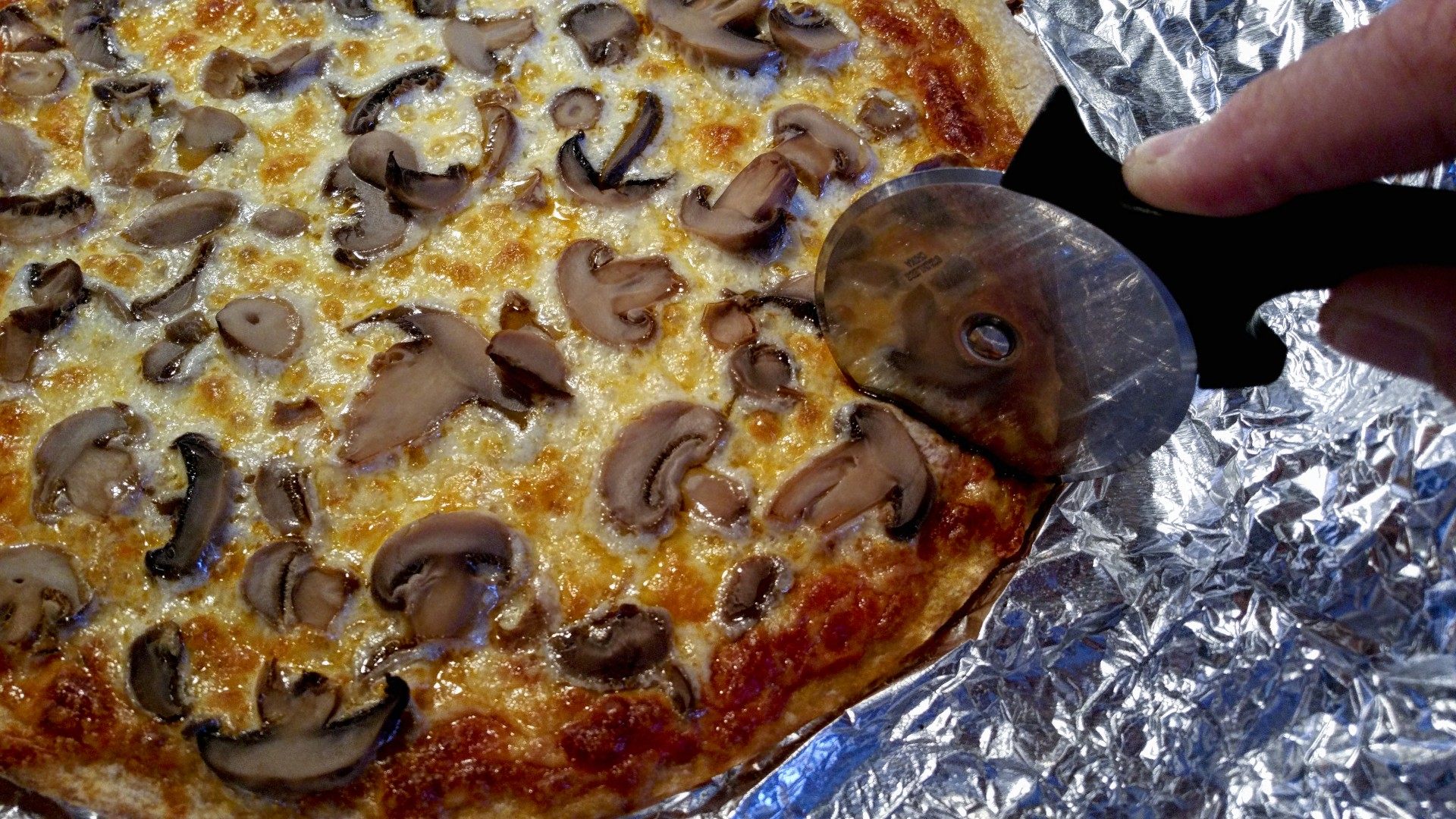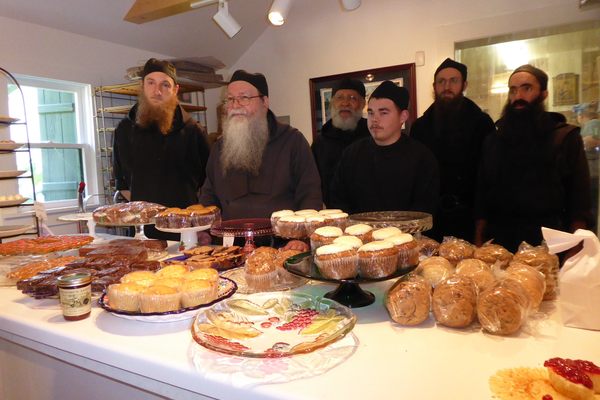The Day That Michigan Held a Funeral For 30,000 Pizzas
Even the governor came to pay his respects.
44,000 pizzas dumped in an Ossineke landfill due to possible botulism tainted mushrooms
— Michigan’s Past (@MichiganHist) February 10, 2017
Escanaba Press 3/8/1973#nationalpizzaday pic.twitter.com/xoHYnG5GQl
On March 5, 1973, several dozen people headed out to a farm in Ossineke, Michigan, to witness an unusual event: the burial of an estimated 30,000 frozen, family-size mushroom pizzas. The mood was somber, and a little cheesy. The governor of Michigan, William G. Milliken, gave a brief homily “on courage in the face of tragedy,” before bulldozers began shoving pizzas into an 18-foot hole.
“I guess by next fall there won’t be anything but the cellophane,” the farm’s owner, Gary Johnson, was quoted as saying as he peered into the mass grave. Pile after pile of pies slid out of a line of pickup trucks and into their final resting place. When it was all over, the victims’ creator, the frozen pizza magnate Mario Fabbrini, laid a two-colored flower garland on the grave: red gladioli for sauce, white carnations for cheese. He then offered slices to all of his guests.
The story of the Great Michigan Pizza Funeral is one of loss, terrible maladies, and spilled marinara. But it’s also a classic tale of the strange obstacles immigrants can often face in new countries. In this specific case, it was bad mushrooms that interrupted Fabbrini’s American dream.

In January of 1973, employees at United Canning in Ohio were checking their inventory when they noticed some of their tins of mushrooms had swelled up. Swelled cans are bad news, and sure enough, tests revealed that the cans were harboring Clostridium botulinum, the bacterium that causes botulism, which can lead to body-wide muscle weakness, low blood pressure, and, sometimes, death.
The FDA removed the affected products from store shelves, but to ensure a comprehensive recall, they had to make some calls up the supply chain. Various prepared food businesses used United Canning’s mushrooms, including Mario Fabbrini, owner of Papa Fabbrini’s Frozen Pizzas.
When Fabbrini got the call, “everything [went] dark,” he later told the Detroit Free Press. Fabbrini was an immigrant, and the architect of his very own all-American success story. He had a visceral understanding of what he stood to lose, and a palpable fear of losing it. He had come to Michigan from Fiume, Italy, after World War II, having grown up under the Fascist regime—“They put the black shirt on me when I was six years old,” he told United Press International. After he got to the U.S., he and his wife, Olga, adapted his family pizza recipe for American palates (“the pizza from my country no one here would eat,” he told one reporter), and went from rolling dough to raking it in.

When he got the news about the mushrooms, Fabbrini stopped his shipments and submitted his mushroom pizzas to a crude contamination test: slices were fed to a couple of FDA lab mice, who promptly died. So Fabbrini recalled his ‘shroom-topped pies, rounding them up from local restaurants and grocery stores. In order to get rid of them, he decided to throw a funeral—partly for the grand optics, but, one suspects, partly as a display of accountability, too.
By the time of the botulism scare, Fabbrini was a decade into his pizza-making career. He was churning out tens of thousands of pies per week, with the help of 22 full-time employees and a state-of-the-art factory. The scandal threatened to undo all he had worked for. “All I could think was, ‘Oh my God. Not me,’” he told UPI.
Some people—at least 17, UPI reported—tried to make Fabbrini’s nightmare come true, claiming they had taken ill from tainted toppings. His neighbors, though, rallied in support. One local fan, anticipating Fabbrini’s bankruptcy fears, offered to put some stock up for collateral if it became necessary to save his business. A bank teller told Fabbrini that a nearby priest was leading prayers for him.

Besides the governor, dozens of community leaders attended the funeral, including Chamber of Commerce members and bank presidents. “It sorta makes you goose pimples about America,” Fabbrini said to the UPI reporter. Governor Milliken later called Fabbrini “an example for all of us.” The article’s subhead, mincing no words, was “Immigrant Offered Help.”
In the end though, Fabbrini’s dramatic action was all for naught. In the two weeks between the recall and the funeral, the pizzas were let off the hook: Their mushrooms were untainted after all. The mice that died after eating them had apparently succumbed not to botulism, but to some other mouse malady. (“I think it was indigestion,” Fabbrini told the Associated Press. “Maybe they didn’t like my pizza.”)
Fabbrini’s sales took a bit of a dive—the pies buried at the funeral cost him about $30,000. According to legal documents, he lost even more money bringing new flavors to market, because his customers lost trust in mushrooms. But his business survived, and the tale of the Great Michigan Pizza Funeral harbors one final twist. Those legal documents only exist because, a few days before the burial, Fabbrini sued the canning company for a million dollars, and won a good chunk of it—an all-American ending to an all-American story.
This story was updated, with minor edits, on October 21, 2020.
Gastro Obscura covers the world’s most wondrous food and drink.
Sign up for our regular newsletter.


























Follow us on Twitter to get the latest on the world's hidden wonders.
Like us on Facebook to get the latest on the world's hidden wonders.
Follow us on Twitter Like us on Facebook